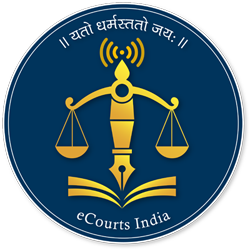The Courts and COVID-19: Adopting Solutions for Judicial Efficiency

Hon’ble Dr Justice D Y Chandrachud delivered a speech at the World Bank on the topic “The Courts and COVID-19: Adopting Solutions for Judicial Efficiency” on 17 June 2020.
In the presentation, he discussed the immediate judicial responses to the Covid-19 pandemic in India. Supreme Court of India passed orders suspending limitation period and extended interim orders and bail condition orders. Guidelines for holding court hearings through video conferencing, standard operating procedures for urgent hearings and e-Filings were adopted to meet the challenges posed by the pandemic.
He also discussed the milestones achieved by the e-Committee through its e-initiatives, which include:
- Development of a Free and Open Source Software based case information and management system.
- E-service Centres in Court Complexes.
- Virtual Courts for petty traffic offences have been inaugurated with options of either admitting the petty offence and online payment of fine or with an option to contest the case if not admitted.
- Development of a National Judicial Data Grid as a national repository of data relating to pending and disposed of cases in all district, taluka courts and High Courts of the country.
- Introduction of GPS enabled software application NSTEP to tackle the delay in service of summons.
- Usage of artificial intelligence (AI) for translation of Supreme Court judgements, to track cases having repeated patterns, cheque bouncing cases and for tracking the trajectory of cases.
He suggested that the government, as the largest litigant, can use AI for predicting outcomes and arrive at objective settlements.
Quoting Susan Hood, the Chief Executive of Her Majesty Courts and Tribunal Services, Government of U.K., he said, “our processes do not need to be as old as our principles”. Technology has transformed the requirement of physical presence in courts. There is a need to envisage the administration of justice as a service to the citizens. Highlighting the importance of inclusive justice, he said that the interface of the e-Courts’ initiatives should promote access to justice, which can be achieved by designing such applications and websites with a user-centric model in mind.
He emphasised that path for the future should be based on the principles of empathy, sustainability and transparency. This requires consultation among various stakeholders, including the government, bar, private sector and individuals. There is a need to evolve feedback mechanisms, develop inclusive frameworks to reduce digital divide, training stakeholders, maintaining standardisation and uniformity across courts in the country and having robust data protection and data migration system.


